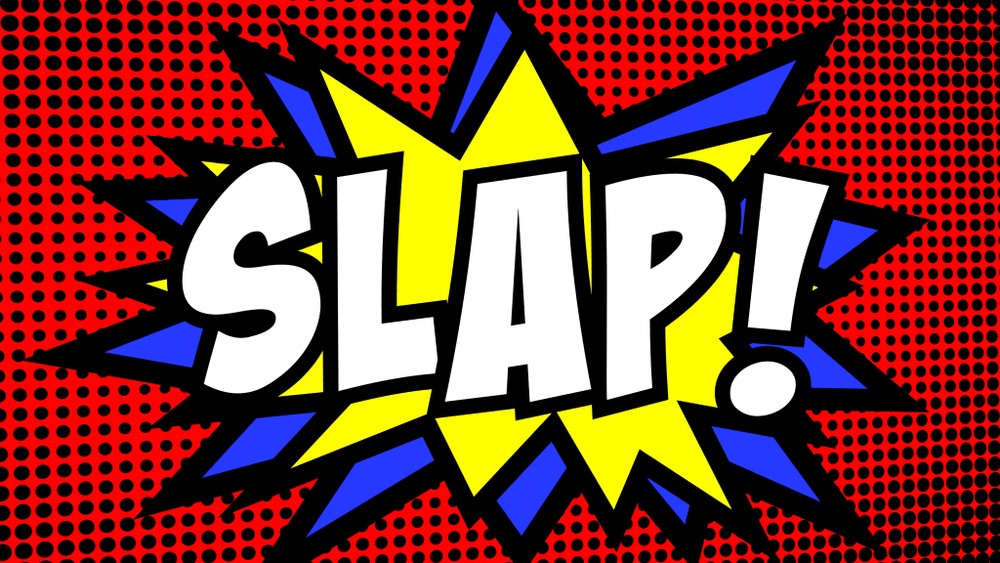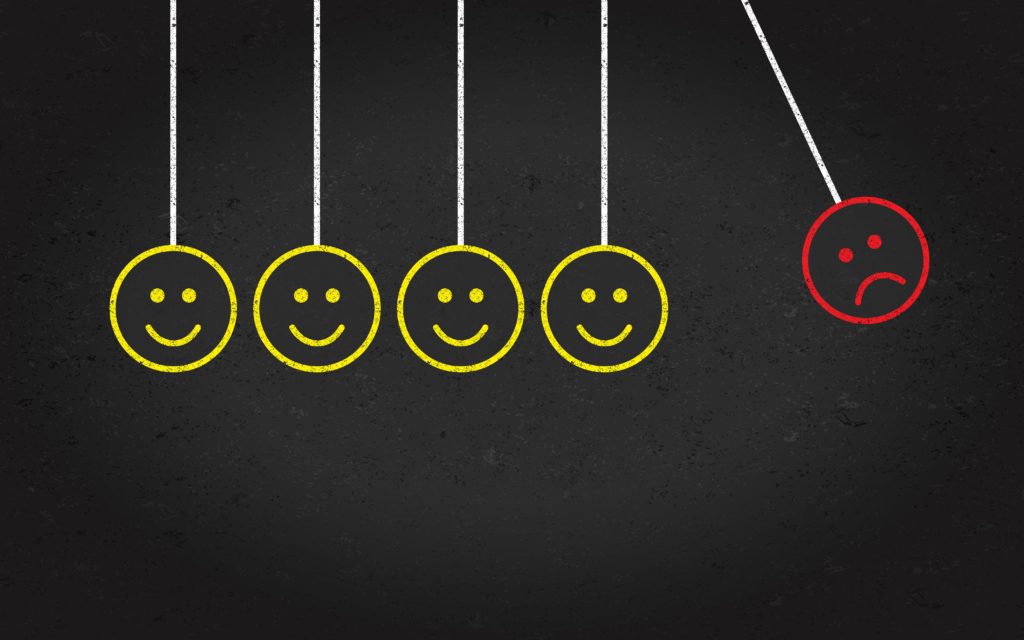
The self-help industry is booming. Yet, it remains surprisingly difficult to find good self-help books for caregivers (The Reality Slap isn’t actually a caregiving-related book at all, but as you’ll see, it’s very relevant to most caregivers).
Much of the problem is that few books are written with caregivers in mind. And, many of the books written for caregivers focus on the practical challenges of caregiving.
The practical side of this is important, there’s no doubt about that. However, caregiving also comes with considerable emotional and mental challenges too.
The Reality Slap, by Dr. Russ Harris, is one book that might just help.
While The Reality Slap isn’t written for caregivers specifically, it does take a different angle than most self-help books – as Dr. Harris offers advice for “how to survive and thrive when life hits hard.”
Caregiving certainly fits into the idea of life hitting hard. Sometimes being a caregiver seems like many reality slaps one after another after another.
So, let’s look at what The Reality Slap offers and whether it might be helpful for you.
You might see the book called When Life Hits Hard: How to Transcend Grief, Crisis, and Loss with Acceptance and Commitment Therapy. This is because the book was initially published in 2011 and was significantly revised in 2020. In some places, including the United States, the revised version was given a new title.
This review and discussion does focus on the updated version. I still call the book The Reality Slap, as in New Zealand (where I live), the updated version still has the original title.
What The Reality Slap Covers
The Reality Slap focuses on Acceptance and Commitment Therapy (ACT). This theory is strongly rooted in mindfulness and acceptance, but it also has some other aspects, including an emphasis on change.
That change focus is one reason that ACT works so well for caregivers.
After all, you’re often in a situation that can feel overwhelming at times, if not completely impossible. As contradictory as it sounds, The Reality Slap can teach you how to be okay with how things are and also how to make the changes that you need to.
Mindfulness itself doesn’t preclude change, but it is often interpreted as being a passive approach that aims to make you content with wherever you are. With his books on ACT, Dr. Harris spends a lot of time talking about the link between acceptance and change, which is incredibly useful for beginners.
Sections of the Book
The Reality Slap is broken down into three key sections called Regroup, Rebuild, and Revitalize.
The chapters look like this:
Regroup
- When Life Hurts. Talks about what happens when life gets difficult, including the stages of grief, along with fight, flight, and freeze reactions.
- First Things First. Introduces some key principles, such as the way that people need other people and the importance of experimenting to find what works for you.
- Kind Words. Dips into the mindful self-compassion arena and talks about the importance of being kind to yourself.
- Drop the Struggle. Talks about how we spend so much energy trying to escape uncomfortable feelings, but those emotions are a key part of being human.
- When Storms Arise. Introduces the idea of ‘dropping an anchor’, which includes the ACE formula (acknowledge, connect, engage).
- Psychological Smog. Moves into the way that the mind works, the ‘voice’ in our heads, and the stories that we tell ourselves.
- Notice and Name. Talks about noticing and naming the thoughts we experience, to help decrease our connection to them.
- Live and Let Be. Introduces breath work, including multiple exercises to get you started.
- Our Allies Within. Talks about how emotions can be helpful and what they might be telling us.
- A Curious Look. Looks at how we can be curious about what we think and feel, as a way to observe without becoming too invested.
- A Kind Hand. Talks about self-compassion again, with reference to the importance of physical touch.
- When Memories Hurt. Looks at exercises and approaches for when memories are painful.
Rebuild
- Making Life Meaningful. Looks at ways to add meaning into your life, using values as a guide.
- One Small Step. Talks about beginning slowly and finding ways to add your values into your life.
- The Challenge Formula. Looks at what your options are in a crisis, including improving the situation where you can or dwelling on what you can’t do.
- The Prison of Resentment. Introduces the idea of using forgiveness to reduce resentment and self-blame.
- It’s Never Too Late. Reminds readers that it’s always possible to grow and make changes.
- Breaking Bad Habits. Talks about ways of breaking old habits and making new ones.
Revitalize
- The Stage Show of Life. Brings in the idea of an observing self, along with the fact that there’s lots of life going on, regardless of the pain you’re experiencing.
- The Full Experience. Highlights ways of being mindful of the full experience of life.
- Joy and Sorrow. Talks about how we can learn and grow from the difficult times (which doesn’t negate the fact that they’re difficult)
Personal Thoughts on The Reality Slap
The Reality Slap is an easy book to read. It’s not one of those books that includes pages upon pages of evidence and lingo to wade through.
Instead, all of the principles are easy to understand. Dr. Harris includes plenty of examples from his practice and experiences to highlight his points.
This is also a strongly practical book.
Dr. Harris includes exercises throughout to show readers how to put some of the principles in practice.
This style works well for many people. If you’re like me and aren’t as fond of exercises, then you can always skin over them and focus on the theory. Conversely, you could skim the theory and focus on the exercises instead.
Interesting Things I Learned

The Reality Slap is packed full of ideas. Rather than focusing on them all here, I want to talk about a couple that jumped out to me.
The Idea of Regroup, Rebuild, Revitalize
I love how The Reality Slap is broken into Regroup, Rebuild, and Revitalize sections. Not only are the ideas powerful, but the order is as well.
Dr. Harris spends a lot of time on the first section – regroup. This is a good approach, as regrouping when you’re in immense pain is difficult. It’s often hard to see your way through the haze. The way Dr. Harris presents this section, one step at a time, works well.
Dropping Anchor
I particularly liked Chapter 5 of The Reality Slap, called “When Storms Arise”. In it, Dr. Harris introduces an idea that he calls dropping anchor, an approach that you can use during emotional storms.
The technique is linked to a simple formula – ACE, which stands for:
- Acknowledge your thoughts and feelings
- Connect with your body
- Engage in what you’re doing
After introducing the idea, Dr. Harris runs through some examples.
The dropping anchor technique takes some getting used to and you might need to adapt it to meet your own needs, but it is a useful one, particularly for caregiving.
Essentially, you’re finding a way to reground yourself, even amid a crisis. The first step, acknowledge, is strongly in line with mindfulness principles. It’s a powerful approach, as trying to fight your emotions often makes them worse and doesn’t tend to help you much in the long-term.
Dr. Harris also makes the important point that anchors don’t control storms. You may still feel the emotional storm raging, even after using the technique. That’s fine. The technique does, however, bring you back to a more grounded place, one that’s easier to move forward from.
It’s easy to see how this approach would help with caregiving, as it gives you a way to be kind to yourself and accept what you’re feeling, but also helps to put you back into life.
Creating Meaning
I also enjoyed Chapter 13 – “Making Life Meaningful”. This acts as the start of the Rebuild section of the book (which is a fitting place for it).
The chapter focuses on one idea, using your values as a guide for creating meaning. Dr. Harris doesn’t spend a long time on this topic, just one chapter, but it’s enough to get you started.
Creating meaning in your life can be a crucial tool for caregivers. While some caregivers find an increased sense of purpose in their role, many others feel like their life has been taken away from them, that they can no longer live in the way that they want to
For example, you might have needed to give up your career to care for an aging parent or may not be able to travel in the way that you had hoped to.
As part of the chapter, Dr. Russ gives the example of a woman with fibromyalgia, struggling with losing many of her favorite past-times. This is a particularly useful case study for caregivers, as a chronic illness like fibromyalgia is an ongoing challenge, much like caregiving is.
The Limits of The Reality Slap
While I did enjoy The Reality Slap, there are a few issues to talk about.
First, the book feels simplistic in places.
Like The Happiness Trap, it’s best to see the book as an introduction to the field. You may need to dig into some of the areas more to learn all you need to (for example, there are a few short chapters on mindful self-compassion – a topic that has been the subject of multiple books).
Second, Dr. Harris doesn’t provide much evidence.
He tends to present things as factual, without much explanation. For example, his definition of values is “your heart’s deepest desires for how you want to behave as a human being”, which is a bit different to how values are normally defined.
Third, the techniques won’t work for everyone.
As with other self-help books, The Reality Slap is written for a general audience.
This means that the book can’t take all individual differences into account. Readers need to approach the book with this in mind and pick and choose the techniques they follow based on what works for them.
Helpfully, Dr. Harris does mention this in some parts of the book, telling readers to skip exercises that are too distressing.
Also, don’t worry too much if you can’t do any of the exercises that he talks about. Past trauma or variations in brain chemistry can mean that some activities just aren’t possible for you. There’s nothing at all wrong with this.
The Reality Slap and Caregiving
The Reality Slap isn’t written for caregivers. In fact, Dr. Harris spends most of the time talking about situations where something happens that you then need to recover from. His main example is grief after someone dies.
Caregiving, on the other hand, is an ongoing reality slap. You need to learn how to regroup, rebuild, and revitalize yourself while the crisis is still going on. Dr. Harris touches on this in some of his examples, but he doesn’t go into depth about ongoing crises.
The book is still useful, there’s no doubt about that. But, you’ll need to adapt his approaches somewhat.
The Reality Slap vs The Happiness Trap

Dr. Harris has written multiple books, most of which focus ACT principles. However, the books are all quite different.
The Happiness Trap, which I reviewed in an earlier post, is an excellent starting point for focusing on ACT. In that book, Dr. Harris starts by talking about why the search for happiness tends to make us miserable and why some fundamentals of how we understand happiness are completely wrong.
The book highlights some of the same principles as The Reality Slap, but focuses more heavily on techniques to change your relationship to your thoughts.
While both books are useful, The Reality Slap is a much better choice for caregivers. Dr. Harris covers a broader range of ideas in The Reality Slap and fully recognizes the fact that life often isn’t simple.
Should You Read The Reality Slap?
I recommend The Reality Slap to every caregiver, with one key caveat.
Always, and I mean always, pay attention to yourself. Self-help books are written for a general audience. Even the best author can’t account for all of the differences between people.
Indeed, it’s best to approach all self-help books with an attitude of curiosity. Be interested in what the author has to say, be willing to experiment and try things out, but don’t assume that everything that is written is 100% true for you.
In the end, self-help is just that self help. No one can give you a complete blueprint for how to do better. You’ll need to take information from different sources and find what works for you.
Remember too that The Reality Slap isn’t written for caregivers specifically. Dr. Russ Harris mostly focuses on recovering from difficult situations, like the death of a loved one or a breakup. He spends much less time talking about ongoing crises, like the ones you experience as a caregiver.
Because of this, some of his ideas and techniques may be a better fit for you than others. You may need to skip over some ideas and tweak others to make them work.
Even so… it’s rare to see a self-help book that focuses on difficult situations as much as this one does. The Reality Slap is worth reading for this reason alone.
Feeling Overwhelmed?
Check out our Caregiving Consulting service for personalized support and guidance.

Leave a Reply